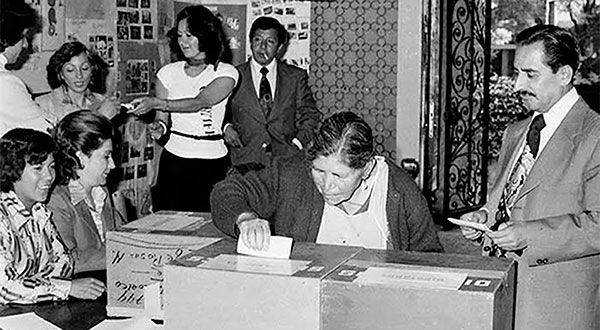Women's vote, an element in the political construction of the country
In July 1955, women went to the polls for the first time to elect federal deputies. Today, women in Mexico hold important positions in the public and private sectors, as well as in educational institutions.





